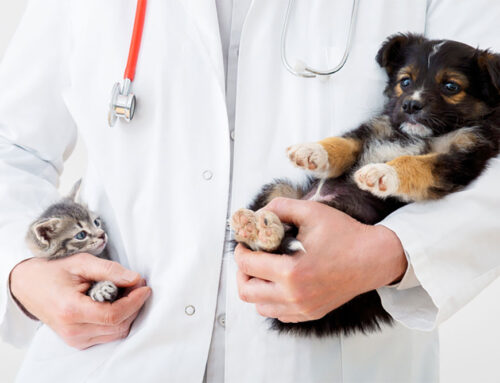Did you know that one in four dogs and one in five cats will develop cancer during their lifetime? At Midtown Veterinary Hospital in Rochester, New York, we’re dedicated to helping you detect and address cancer in its earliest stages. Early intervention significantly improves treatment success, giving your beloved pet the best chance for recovery and a high quality of life. With state-of-the-art diagnostics and compassionate care, we’re here to support you every step of the way.
Understanding Cancer in Pets
Cancer occurs when cells grow uncontrollably, affecting nearby tissues or spreading to other organs. It’s one of the leading causes of death in pets over ten years old, according to The Veterinary Cancer Society. However, with early detection and prompt care, many pets can live longer, healthier lives.
Recognizing Symptoms of Cancer in Pets
Being vigilant about your pet’s health is key to early detection. Look for these common signs of cancer:
- Lumps or Bumps that persist or grow.
- Abnormal Swelling that doesn’t go away.
- Sudden Weight Loss or Loss of Appetite.
- Bleeding or Discharge from any body opening.
- Persistent Sores or wounds that don’t heal.
- Difficulty Eating or Swallowing.
- Hesitation to Exercise or loss of stamina.
- Offensive Odors, particularly around the mouth or ears.
If you notice any of these symptoms, contact us immediately to schedule an evaluation. Regular check-ups with our Wellness and Prevention services can also help catch these signs early.
Breed Predispositions to Cancer
Certain dog and cat breeds are genetically predisposed to cancer. Knowing your pet’s risks can help guide preventive care and screening.
Dogs
- Golden Retrievers and Labrador Retrievers: High risk for lymphoma and hemangiosarcoma.
- Boxers: Prone to mast cell tumors and lymphoma.
- Bernese Mountain Dogs: Susceptible to histiocytic sarcoma.
- Scottish Terriers and West Highland White Terriers: Increased risk for bladder cancer.
- Rottweilers: Frequently diagnosed with osteosarcoma (bone cancer).
Cats
- Siamese Cats: Predisposed to mammary cancer and lymphoma.
- Light-Colored Cats: Commonly develop squamous cell carcinoma from UV exposure.
- Oriental Breeds: Higher risk of lymphoma and oral cancers.
If your pet belongs to one of these breeds, consider scheduling regular screenings or genetic testing to stay ahead of potential issues.
Importance of Early Diagnostics: Cytology and Biopsy
Early detection is essential for successful cancer management. If you notice a lump, your veterinarian may recommend a cytology or biopsy:
- Cytology: A quick and minimally invasive procedure where cells are collected from a lump for analysis. This helps determine if the lump is benign or malignant.
- Biopsy: A more comprehensive evaluation involving tissue removal, often used to confirm a diagnosis and guide treatment.
By identifying cancerous growths early, we can develop an effective treatment plan tailored to your pet’s needs.
The Importance of Removing Masses Early
Even if a mass seems small or harmless, prompt removal is crucial. Waiting too long can allow the tumor to grow, spread, or invade nearby tissues, making treatment more challenging. Early removal not only improves your pet’s prognosis but can also prevent discomfort or complications.
What Are Met Checks?
When cancer is diagnosed, metastatic checks (met checks) are performed to assess whether the cancer has spread to other organs. This process may involve:
- X-rays or Ultrasound: To look for masses or abnormalities in the chest, abdomen, or other areas.
- Blood Work: To evaluate organ function and detect abnormalities.
- Advanced Imaging (CT or MRI): For a detailed view of potential spread.
Met checks are critical for staging the cancer and determining the best course of action.
Prevention and Lifestyle Tips

While not all cancers can be avoided, there are steps you can take to lower your pet’s risk:
- Routine Veterinary Exams: Regular check-ups ensure early detection of abnormalities.
- Maintain a Healthy Weight: Obesity increases the risk of many cancers.
- Avoid Known Carcinogens: Limit exposure to secondhand smoke, pesticides, and harmful chemicals.
- Spay and Neuter: Reduces the risk of reproductive cancers, such as mammary tumors and testicular cancer.
- Nutrition and Exercise: Feed a high-quality diet rich in antioxidants and omega-3s to support your pet’s overall health.
Schedule Your Pet’s Check-Up Today
Early detection can save lives. If you’ve noticed any concerning symptoms or want to discuss cancer prevention strategies, don’t wait. Contact us today to schedule a check-up and ensure your pet receives the care they deserve.
For more information on pet cancer, visit the AVMA article on Pet Cancer or the Veterinary Cancer Society.





Leave A Comment